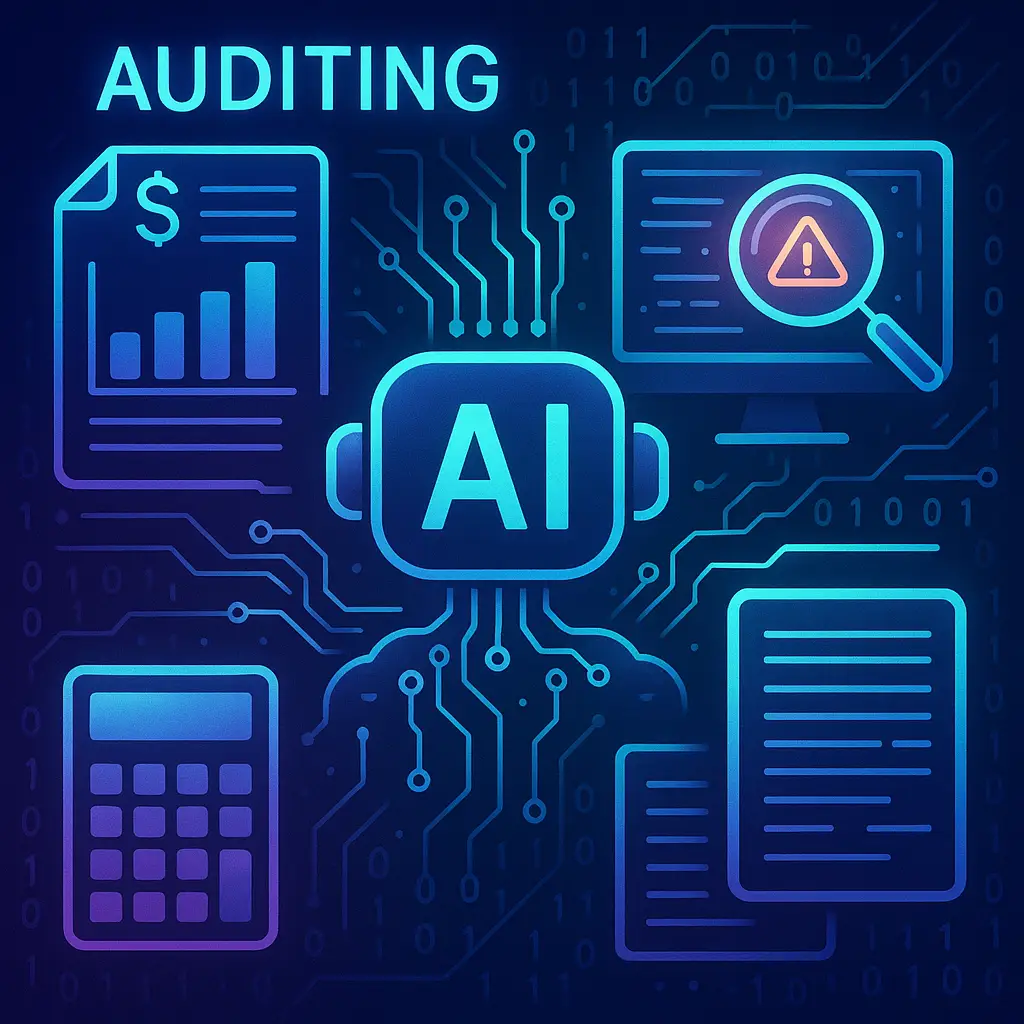AI in Auditing: Beyond Manual Checks
Arthur Patricio
Jul 19, 2025 • 9 min read
Discover how AI is transforming the auditing process, enhancing accuracy and efficiency. This blog explores the benefits of AI in auditing, offering insights, strategies, and practical applications.

In recent years, the world of auditing has seen significant transformations, primarily driven by the rise of artificial intelligence (AI). Traditional auditing methods, often characterized by manual checks and time-consuming processes, are increasingly being complemented—or even replaced—by AI-powered solutions that enhance accuracy and efficiency. In this blog post, we will explore the pivotal role of AI in auditing, its benefits, challenges, and how organizations can leverage this technology to improve their auditing processes.
The Traditional Auditing Landscape
Before delving into the advantages of AI, it’s essential to understand the conventional approach to auditing. Traditionally, auditors spend countless hours scouring through documents, verifying data, and ensuring compliance with regulations. Some of the key characteristics of manual auditing include:
These challenges highlight the need for more efficient, reliable, and consistent auditing methods—the very solutions AI can provide.
The Power of AI in Auditing
AI technology can revolutionize auditing by automating routine tasks and enabling auditors to focus on more complex aspects of the process. Here are some of the key benefits AI brings to the table:
1. Enhanced Efficiency
AI can process large volumes of data much faster than humans. By automating routine checks, AI minimizes the time spent on manual tasks, allowing auditors to achieve more with less effort.2. Improved Accuracy
With advanced algorithms, AI can analyze data for anomalies and patterns that might go unnoticed in manual checks. AI systems maintain a high degree of accuracy, reducing the risk of errors that can affect audit outcomes and financial reporting.3. Consistent Results
AI tools provide standardized procedures for auditing, ensuring consistent responses and analyses regardless of individual auditors. This consistency is crucial for maintaining credibility and trust in audit findings.4. Real-time Insights
Unlike traditional methods, which are often retrospective, AI can deliver real-time insights into an organization’s financial health, highlighting issues as they arise, and enabling more proactive decision-making.5. Cost Savings
By reducing the time spent on manual tasks and decreasing errors related to human oversight, AI-driven auditing can lead to substantial cost savings for organizations.Key Applications of AI in Auditing
Let’s explore some practical applications of AI in the auditing process:Data Analysis
AI can be employed to analyze large datasets efficiently. For example, it can assess transaction data for irregularities, identify trends, and flag potential issues that require further investigation. This capability is essential for risk assessment and fraud detection.Document Review
Optical Character Recognition (OCR) combined with AI can automate the review of documents such as contracts, invoices, and financial statements. This technology enables auditors to quickly extract relevant information, reducing the time spent on document reviews.Continuous Auditing
AI technology allows for continuous monitoring of transactions and controls. By leveraging AI, organizations can maintain an ongoing audit process rather than relying solely on periodic reviews, leading to enhanced compliance and risk management.Fraud Detection
AI algorithms can automatically flag potentially fraudulent activities by identifying unusual patterns in financial transactions. This proactive detection can save organizations from costly losses and damage to their reputation.Risk Assessment
Risk assessment models powered by AI can provide more accurate evaluations of financial risks. These models can analyze market conditions, economic indicators, and internal data to assist auditors in making informed decisions.Challenges and Considerations
While the benefits of AI in auditing are clear, several challenges must be addressed:1. Data Quality
The effectiveness of AI is contingent upon the quality of data input. Organizations must ensure that the data fed into AI systems is accurate, complete, and relevant to achieve reliable results.2. Ethical Considerations
As with any technology, ethical considerations surrounding data privacy and the use of AI must be taken into account. Organizations need to comply with regulations and ensure that their AI systems do not discriminate or create biases.3. Resistance to Change
Auditors accustomed to traditional methods may resist adopting new AI technologies. Ensuring buy-in through proper training and demonstrating the benefits of AI can help mitigate this resistance.4. Integration with Existing Systems
Successful AI implementation requires careful integration with existing accounting and auditing systems. Organizations must evaluate how to best incorporate AI tools without disrupting established processes.The Future of AI in Auditing
As AI technology continues to evolve, its role in auditing is expected to expand. We can anticipate:
Conclusion
AI is revolutionizing the auditing landscape by enhancing efficiency, accuracy, and consistency. As organizations harness the power of AI, they can move beyond traditional manual checks to more strategic and proactive auditing practices. Embracing this technology not only streamlines processes but also significantly reduces costs and risks associated with manual errors. The future of auditing lies in innovation, and AI is at the forefront of this transformation.

Embracing AI in auditing is not just a trend; it’s a necessary step towards a more efficient and reliable auditing process. The organizations that invest in AI now will be better positioned to adapt to the rapidly changing landscape of finance and regulation.
Share this article:
Keep reading

The Importance of Consistency in Proposal Responses: Best Practices
Learn why maintaining consistency in your proposal responses is crucial for credibility and success, plus tips to achieve it.
Jul 14, 2025

Top 20 Security Questionnaire Examples (and How to Answer Them Like a Pro)
Struggling with security questionnaires from clients or vendors? This guide breaks down 20 of the most common security questions—along with expert tips on how to answer them effectively, reduce friction, and win trust.
Jul 10, 2025